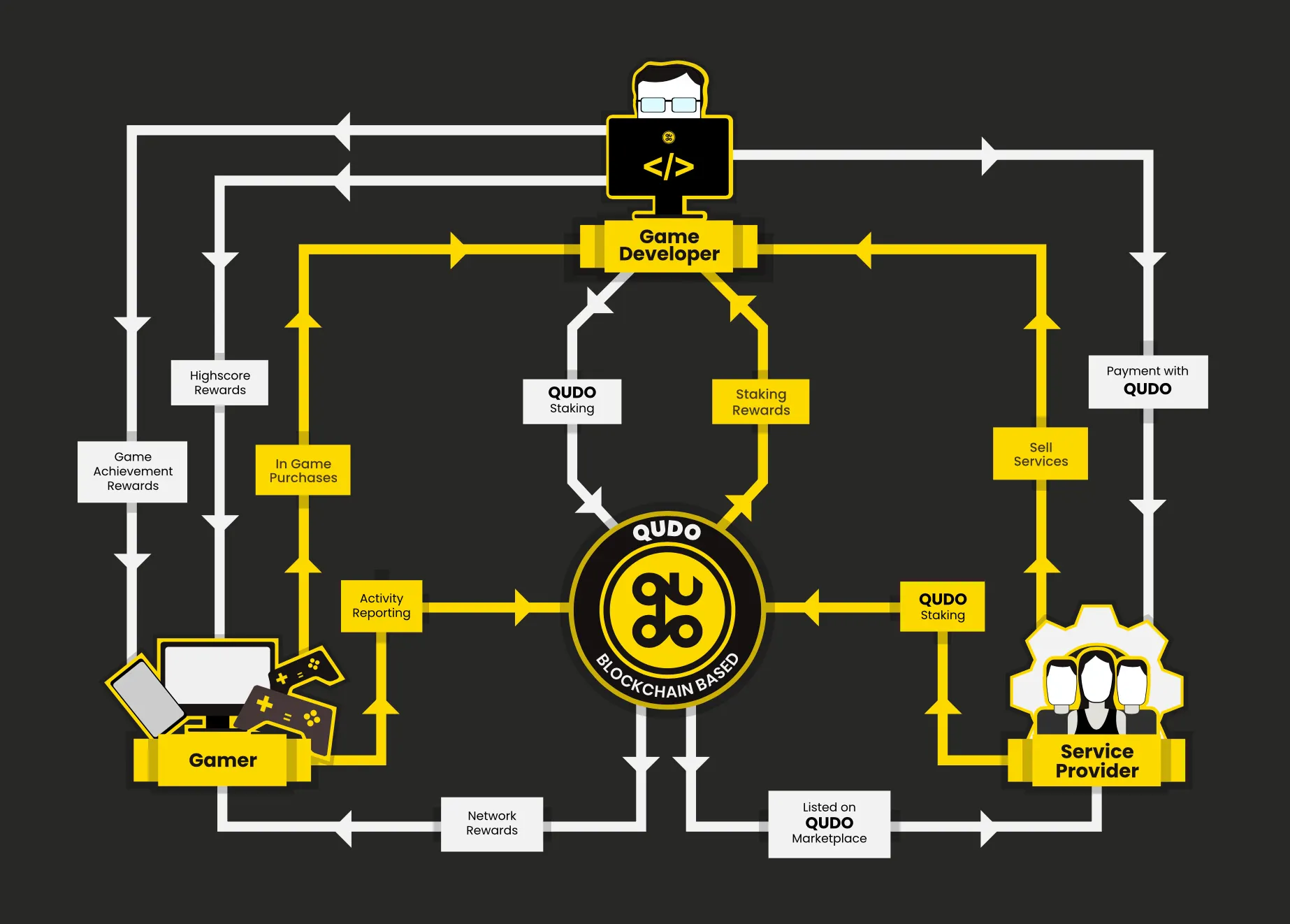In brief
- Developers building on Unity will soon be able to add token-based features with a new protocol called Qudo.
- Qudo developers BlockBastards say gaming activity and performance will be rewarded.
- Some 3.3 billion devices downloaded games running on Unity in just the past 12 months.
A new blockchain protocol called Qudo is opening the door to token rewards on Unity—the engine that powers around half of all video games built across all platforms.
Qudo is developed by Portuguese startup BlockBastards. It will use the Telos blockchain to enable any game built on Unity to add token-based features, using something it calls a “proof-of-gameplay” reward mechanism. The mechanism rewards gaming activity and performance with cryptocurrency, and enables developers to promote their games, according to BlockBastards’ announcement on Wednesday.
Putting crypto in 3.3 billion gaming devices
Some 3.3 billion devices downloaded games running on Unity in just the past 12 months. Gaming is one of blockchain’s most lucrative use-cases, with industry giants like Ubisoft and Square Enix exploring the technology. But to date, according to João Abrantes, Managing Director of BlockBastards, developers have focused largely on crypto speculation, as opposed to token rewards.
"We see many so-called 'blockchain games' entering the market where the gameplay is created mainly with cryptocurrency speculation in mind. With Qudo, we want to bring games built with pure gameplay experiences in mind [sic] first,” he said.

”We've already seen on traditional gaming platforms that releases with in-game credit systems tend to make the most money. Now it will be even more powerful to offer those types of features on-chain with Qudo,” said Abrantes.
He added that developers are also invited to apply to be founding partners in Qudo, and earn block rewards.
Earning crypto for the games they create
BlockBastards is not the only startup targeting Unity, and its huge influence on the gaming industry.
In March 2019, blockchain gaming platform Enjin announced the release of its software development kit (SDK) for the world’s most popular gaming platform. Enjin’s toolkit enables developers to put collectibles—in-game items such as creatures, swords, and armour—on the blockchain. The startup raised $29 million in its 2017 ICO, and launched on the Ethereum blockchain in February.
A launch date for Qudo is yet to be announced; BlockBastards is aiming to attract developer interest first.
In the announcement, Suvi Rinkinen, CEO of the London-based Telos Foundation, which administers the Telos blockchain, promised “a whole new way for developers to earn money for the games they create.” And that can’t be a bad thing.

